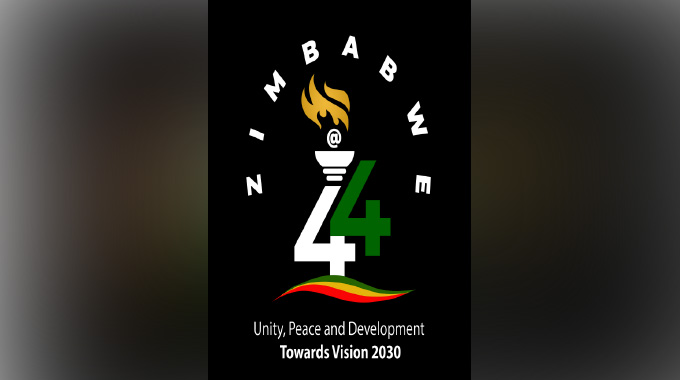Sanctions fuel promiscuity: Book

who are training as nurses and teachers in Zimbabwe every year, a leading author has warned.
This could worsen the impact of HIV and Aids on the labour movement in the country as a whole, says author Bissett Chitsike.
The young people, he warned, were bearing the brunt of the sanctions which the Western bloc imposed on the southern African state at the behest of the colonial ruler, Britain.
Chitsike says this in his book “Uri Zimbwende” published by Mambo Press in 2010.
The coalition Government of the three political parties, which signed the agreement, had run its course. The parties were Zanu-PF and two factions of the truncated MDC.
Zanu- PF has since launched a nationwide crusade to get signatures that would show the country’s outrage at the damage which the sanctions have inflicted on ordinary people.
In “Uri Zimbwende”, Chitsike says that young people should protect themselves against HIV and Aids when they go to look for work.
In the main plot, Tariro Nyashanu left Marondera to look for work in Harare in 2009.
He stayed with his uncle Robson Gwenzi in Glen Norah. Gwenzi told his nephew that many young people were getting jobs through all sorts of means, one of them sex for work, and many contracted HIV and other sexually transmitted diseases in the process. Gwenzi warns his nephew and pleads with him to find a good wife when the right time comes.
Chitsike’s characters stood up well because he knew how to handle his dialogue.
In the book, thousands of other youngsters like Tariro had come on to the labour market at the end of the school year in December. The intake for universities took place in the New Year and in August. But the sanctions that the Western bloc imposed on Zimbabwe, Chitsike says, have created conditions that discriminated against women entering the labour market.
The sanctions were entrenching the syndrome of the carpet interview in which men asked for sexual favours from women in exchange for jobs.
The prolific writer says the high rate of unemployment, which is prevailing in the country leaves women at the mercy of men who are abusing their positions of trust at work.
“Vana vazhinji vari mubasa umu vakapinda vanzi ngavatange vadanana nevanopinza basa kana vanosarudza vaya vanoita makosi outicha kana ounesi,” said Chitsike.
“Vamwe vavo vanorara navo vachirishaya zvakadaro. Ndosaka Aids isirikupera asi kutocherera midzi. Vakomana vazhinji vava mbavha kana matsotsi vachiuraya vanhu napamusaka pokushaya mabasa. (Many young women who wanted to enroll as nurses and teachers got places and jobs if they had had sex with some officials on the selection panel. Some of them did not get the jobs despite having been intimate with the men.”
The book further says that because of this, new cases of HIV increased instead of diminishing.
Chitsike says: “Poverty has forced enterprising young people to earn their living by performing drama in First Street in Harare.
“Others have turned to prostitution. The situation is unbearable. It is worse in Harare.”
The artist appealed to young people to avoid getting jobs through corruption.
They lost money which they paid to get jobs when they got fired. A lot of people were getting money through dishonest means.
“This is forcing many people to get infected with HIV,” he said.
He adds: “No matter how hard life becomes, you shouldn’t be tempted to become robbers.
“You don’t know what the future has for you. The road that you want to take might be full of thorns. You are the master of your own destiny through learning from what other people are doing.
“Never take anything that comes up when you are not sure of where it comes from. We will bury you very soon if you do that. Harare has become dangerous. You should not play with it.”
HIV had been in Zimbabwe for about 30 years. Awareness campaigns have failed to pinpoint carpet interviews as a way of spreading the virus because of its secretive nature, the book points out.
The book highlights how the literature on the pandemic didn’t even specify the carpet interview syndrome as an agent. The victims would not have entered the labour market when campaigns reached factory floors. The syndrome took root at the same time when the pandemic was first diagnosed in this country during the first half of the 1980s.
The book also touched on the area where a cloud was hanging over the role which traditional healers were playing in the treatment of people who were living with the virus. It highlights the role played by Dr Timothy Stamps, who was the Minister of Health and Child Welfare when the Zimbabwe National Traditional Healers Association teamed up with the University of Zimbabwe to do research. Chitsike spoke of cremation as a way of managing the shortage of burial space. In the book, the rate at which the virus was killing people was alarming. All space that had been set aside for cemeteries in towns was getting used up. A crisis was looming in connection with how to keep on burying bodies without chocking up the towns with graveyards. The notion that burial was customary should be buried, Chitsike argued. There was a dire need to slash demand for burial space in urban centres. The practice of cremation could go a long way in alleviating the pressure that was on the local authorities to provide the ground for cemeteries.
In his numerous works, Bissett Chitsike had always been expressing himself fluently in the language that his mother had bequeathed to him.
The first step for one to become a patriot was to love one’s own language – and then to read books that were written in that language.
Bissett Cosmas Chitsike was born at St Faith Mission near Rusape. He did his primary education there and at St David’s Mission near Bonda.
He did his secondary education at St Augustine’s Mission at Penalonga and trained as a teacher there.
He took his BA General with Unisa and gained his BA Honours and his MA through the University of Zimbabwe. He taught at St Mary Magdalene Mission at Nyanga and at Dombotombo Government School at Marondera. He also worked for the defunct Literature Bureau.








Comments